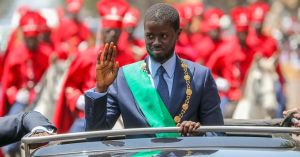Bangladesh is gearing up for what could become one of the most significant political confrontations of the year: the potential extradition of former Prime Minister Sheikh Hasina from India. Throughout the past few months, tensions have escalated following Hasina's abrupt departure from Bangladesh amid widespread protests against her government, which lasted fifteen years and was criticized for authoritarian tendencies. The current interim leader, Muhammad Yunus, has publicly committed to seeking her return to face grave accusations including crimes against humanity.
Since assuming the position on August 8, 2024, Yunus has taken decisive actions to root out individuals from the previous administration who he claims perpetrated violence against protestors during the upheaval. It was on the 100th day of his interim government, November 17, when he made this pledge to the nation. Speaking from Dhaka, Yunus confirmed, "We’ll seek the repatriation of the deposed dictator, Sheikh Hasina, from India. We have taken initiatives to try those responsible for enforced disappearances and murders during the July to August uprisings." This remark follows earlier similar commitments he made during the mass protests, which saw fatalities exceeding 1,500 individuals as demonstrators demanded political reforms.
Sheikh Hasina fled to India on August 5, taking refuge as violence escalated following protests demanding her resignation. Amid her absence, Yunus's interim government has accused her of severe corruption, general misconduct, and failing to address human rights violations during her tenure. Yunus stated on television: "Not only for the murders of July and August, but we will prosecute all crimes committed over the past 15 years. Many people were subjected to enforced disappearance and murder during this time, and under our administration, we will seek justice for those wronged." This commitment highlights Yunus’s intention not only to extradite Hasina but also to bring those who committed atrocities during her administration to justice.
The political atmosphere surrounding the extradition request is complicated. Yunus underscored during his recent statements the necessity for justice and accountability following stark accusations against Hasina and her inner circle. Reports provided by Bangladeshi news agency UNB indicated Yunus has begun the process of gathering evidence and preparing the legal framework necessary for formally asking India for Hasina's return, likely supplemented by anticipated charges from the International Criminal Court. There’s also talk of engaging with financial agencies from the US and UK to trace alleged embezzled funds associated with Hasina’s presidency.
Despite the gravity of the situation, legal experts insist the realities of international law, along with India’s own political climate, may hinder any immediate outcomes. An Indian politician cautioned, "Even if Bangladesh requests extradition, India has the autonomy to respond based on its legislative framework and diplomatic relations." Wooing India remains pivotal for Yunus, who is tasked with restoring stability and seeking international legitimacy for his government. India now finds itself under pressure to manage the resultant diplomatic strife arising from the situation, as unresolved issues might prompt international scrutiny.
Interactions at the Bay of Bengal Conversation 2024, hosted recently, highlighted the complexity of the extradition request. During this session, Indian analysts refrained from directly engaging with questions related to Hasina, prompting expressions of frustration from Bangladeshi intellectuals. They were met with suggestions to follow due legal protocol before raising extradition queries with the Indian administration. Overall, the analysts collectively established the need for dialogue between the two nations to ease regional tensions.
Yunus’s announcement has stirred mixed reactions within Bangladesh. While many advocate for Hasina’s return to face the music for her alleged crimes, others fear it could lead to escalation of political violence and unrest, possibly igniting the very chaos the interim administration seeks to avoid. Commentators are noting the rising expectations for swift reform and justice as looming elections approach. Yunus emphasized the upcoming electoral process during his address, appealing for public patience until necessary democratic reforms are executed. "I promise we will hold the long-awaited election once the necessary and significant reforms are completed," he assured the citizens.
Nevertheless, with growing societal pressure and limited time, Yunus faces potential infighting within his current political affiliates. Margie R. Paterson, of the International Crisis Group, describes Yunus's position: "A monumental challenge awaits him as public expectations mount with each passing day. A misstep could channel the disenchantment of the citizens back toward advocacy for Hasina, fracturing progress toward reconciliation and legal accountability. If the interim administration falters, the military could seize power again."
Yunus finds himself walking a tightrope as he attempts to juggle the demands of addressing public outrage against Hasina with the underlying reality of his precarious political standing. Should diplomatic efforts fail, this situation is predicted to not only adversely affect Bangladesh but might also rattle the already fragile ties within South Asia. While the government continues its legal pursuits, public attention remains fixated on whether Hasina will face justice or remain elusive across foreign borders.



